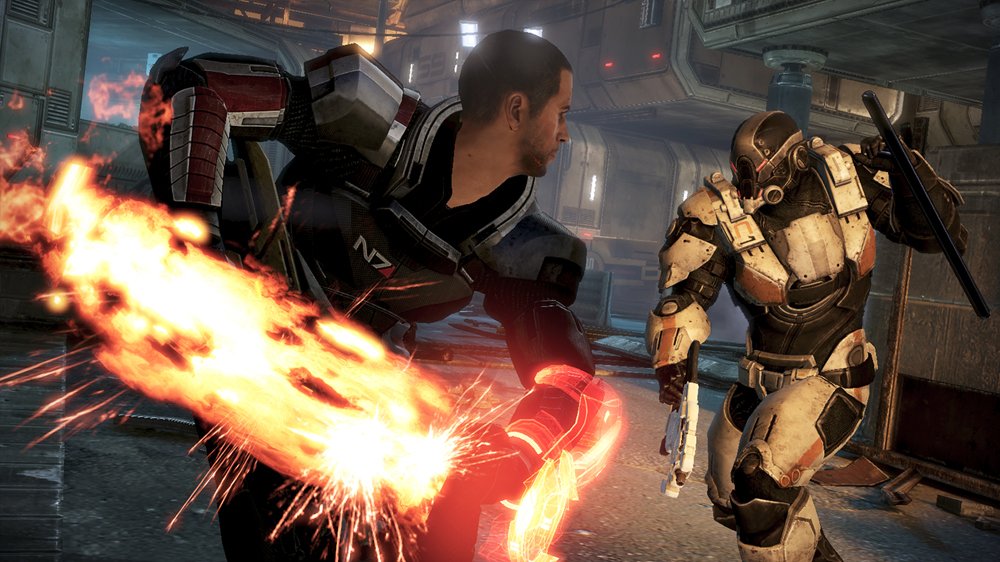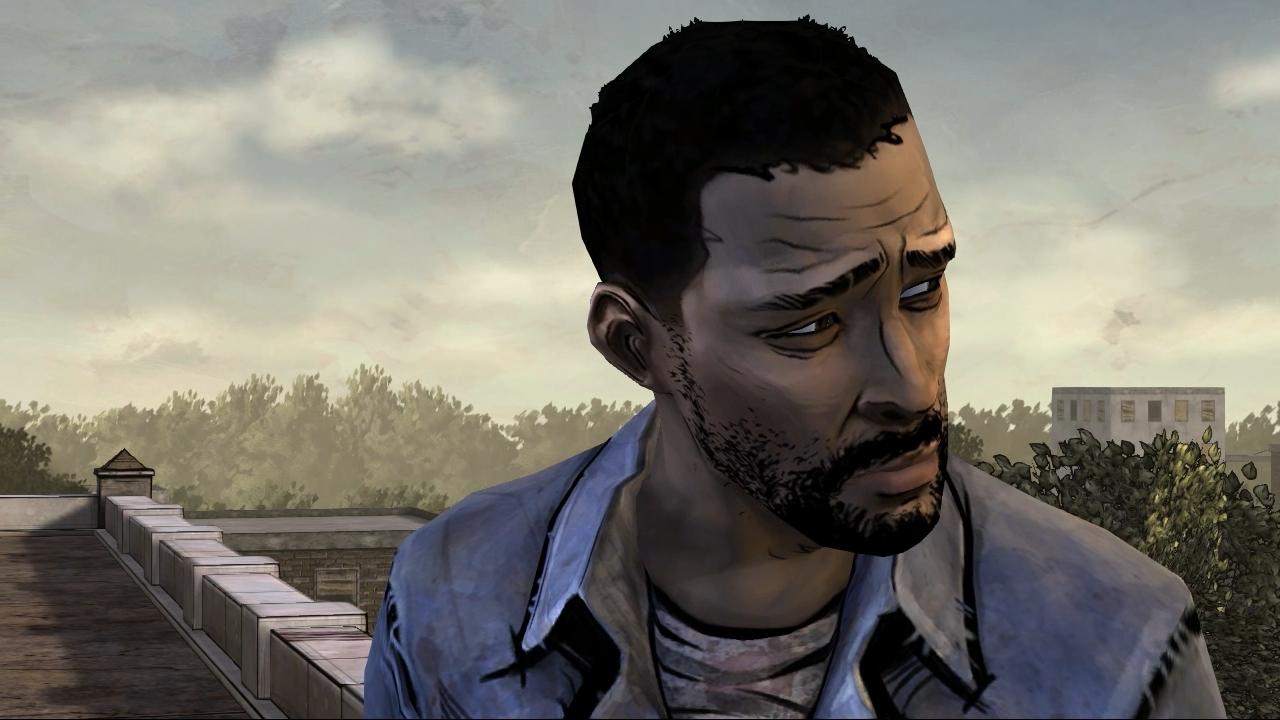Shots in the Dark: Where Gaming's Going
Tom Mc Shea theorizes how this generation's trends will affect the next generation of consoles.
There has been a considerable shift in gaming the last seven years. The releases of the Xbox 360, PlayStation 3, and Wii brought with them much more than the expected graphical upgrades and redesigned controller inputs that herald a new generation. Fundamental aspects of the industry have radically changed from what we were used to, forever altering the types of games that we consume and the ways that we play them. As the next generation of consoles fast approaches, we explore how these recent trends may evolve in the future.
Games as platforms
Not long ago, games were static products that were incapable of being changed once the code had been printed on the disc or cartridge. That's no longer the case. Now, games are delivered piecemeal. Whether unlocking another fighter in BlazBlue, more maps in Uncharted 2: Among Thieves, or new horn sound effects for Dirt 3, there are a huge variety of features to throw your hard-earned money at. This flexibility keeps games feeling fresh long after they hit store shelves, but it has created animosity among people who would rather not be nickel-and-dimed to play complete versions of their favorite games. Downloadable content became into vogue this generation because an online delivery method (and adequate storage space) was previously unavailable. Now that developers have had years of experience with this business model, how will this approach to updating games change in the coming generation?
What the future holds:
Not long ago, games were static products that were incapable of being changed once the code had been printed on the disc or cartridge.This trend will only become more prevalent in the future. But the challenge developers face is balancing their lust for financial rewards with their need to maintain a healthy relationship with consumers. Avoiding the negative backlash that comes with nefarious content upgrades is imperative going forward. Just ask Capcom about the reaction from people who found out the extra characters they were being charged for in Street Fighter X Tekken were already on the disc. Or the negative memes created when Bethesda tried to sell horse armor in Elder Scrolls IV: Oblivion. Charging for more content is a delicate proposition, so expect the smartest companies to toe the line carefully in the coming years.
One game that serves as a model for how to deliver premium features is Mass Effect 3. Despite the unprecedented hatred BioWare received for the single-player campaign, the multiplayer aspect did a great job of making both sides of the economic coin very happy. New maps were added free of charge to the horde-slaying mode, and you could unlock additional gear by plugging away at enemies. But booster packs could also be purchased with real money, giving a shortcut for impatient players while limiting the impact of these items so the game didn't transform into another pay-to-win endeavor. Look for more games to use this approach in the future so no one feels like they're being ripped off.
Social connectivity
Video games are no longer a solitary experience. A need to provide an aura of limitless value has ensured that multiplayer has been crammed into any and every game imaginable. It doesn't matter that no one asked for deathmatch in BioShock 2 or Tomb Raider; you're going to gun down your friends, and you're going to like it. The rare solo offering still trickles through, but that doesn't mean you have to be completely separated from other people. Achievements and trophies let you compare your progress with your peers', and chat functionality means you have someone to talk to at all times. Throw in always-updated leaderboards, and gaming has never been more social. But what will this trend look like a few years down the line?
What the future holds:
You're going to gun down your friends, and you're going to like it.We've only seen the tip of the iceberg in this regard. Right now, the majority of multiplayer experiences demand extreme dexterity and in-depth knowledge to compete so that all but the gaming elite are locked out. Have you ever seen a newbie try to play Call of Duty? It isn't pretty. That exclusionary mentality is fine if raw competition is what you crave, but for the millions of people the world over who just want to have fun, that barrier of entry is too high. Things need to change.
As development costs continue to rise in the console sphere, publishers will steer away from the jack-of-all-trades mentality that has been so prevalent this generation. There is no shame in making a primarily solitary experience, and there will be more games that embrace the lone gamer, albeit with a new slant. Connectivity is only going to become more important as the technology to reach others gets more sophisticated, so there will be elements of multiplayer injected in single-player adventures. Dark Souls is a great example of how such features can be implemented without causing harm to the journey. Adding in helpful messaging or a ready ally (or adversary) engenders a social approach without extinguishing the core appeal. The Miiverse has also made communication even easier, and that trend will only continue.
The Oblivion Remaster Needs To Be Bad In Order To Be Good Star Wars Outlaws: A Pirate's Fortune | Story Pack #2 Reveal Trailer Zenless Zone Zero - Vivian Character Teaser | "When Birds Sing" The Oblivion Situation | The GameSpot Show Cronos: The New Dawn Could Be The Beginning Of A New Era For Bloober Team Diablo x Berserk - Official Collaboration Reveal Trailer FATAL FURY: City of the Wolves|Special Animated Music Video Trailer Bloober Team Breaks Down Their Next Game, Cronos: The New Dawn Capcom Fighting Collection 2 - Physical Comic Book Preview Trailer Cronos: The New Dawn | Official Gameplay Reveal Trailer | DON'T LET THEM MERGE Phantom Breaker: Battle Grounds Ultimate - Launch Trailer GORN 2 - Six Minutes Of Absolute Carnage | Gameplay Trailer
Please enter your date of birth to view this video
By clicking 'enter', you agree to GameSpot's
Terms of Use and Privacy Policy
Death of the midsize game
High-end visuals are impressive to look at, but it costs a pretty penny to pump out cutting-edge graphics. Because of the expense associated with full-price games, there has been a serious decline in the last few years of a middle ground. Games either fall into the AAA classification or take an independent route, with only a few offerings that strike a balance between these two extremes. This has become a serious problem. Uber-expensive games rarely innovate because one false step could lead to financial ruin, and independent games often lag far behind from a technical standpoint. Are we forever doomed to bounce between these two very different types of games?
What the future holds:
Are we forever doomed to bounce between these two very different types of games?Midsize games could see a welcome resurgence in the coming years. The price of development is only going to rise as more detail is required to meet the growing graphical demands, but there's a flaw in the AAA industry's current pricing scheme: $60 is very expensive for a video game. Considering the abundance of low-priced, high-quality games already available on consoles (in their downloadable catalogs), personal computers, and mobile devices, asking people to shell out such an exorbitant fee is a risky prospect.
This opens the door for cheaper games that fall somewhere between the $60 you'd expect from the newest retail release and the $15 (or less) from a downloadable wonder. And the key is digital distribution. Look, for example, at Telltale's approach with its incredibly well-received Walking Dead series last year. By releasing each episode for just $5, the company was able to lure in people who may have been scared to part with their hard-earned cash for an untested property. But once The Walking Dead hooked people with its expertly told story and grisly visuals, paying for the whole season was a no brainer. All told, The Walking Dead was $25 and offered an experience that rivaled (if not surpassed) many AAA offerings. This model could work in a variety of genres and holds the key for middle-class games next generation.
Everything is digital
Broadband and 3G coverage have made gaming more accessible than ever before. You can now download a game whenever you want, instead of being forced to run to a store, and that ease makes it painless to satiate any craving you have, whenever you desire. It's a gigantic leap from what we were used to, but it does have a few noticeable caveats. Namely, we no longer have unregulated access to the games we've purchased. Always-on DRM limits when and how we can play games, and if our Internet connection is severed, we're plain out of luck. There have been serious growing pains as consumers and developers grasp the power of this new reality, and that divide is going to get bigger in the future.
What the future holds:
Broadband and 3G coverage have made gaming more accessible than ever before.Online delivery will only become more viable in the future (as hard drive space and broadband coverage grow), and that means we will no longer own our games. Sure, we'll pay money for them, and be able to play them almost anytime we want, but our relationship to them will end there. Remember when we used to lend games to our buddy? Or rent the newest release from the local video store? Savor those moments, because they will exist only in your hippocampus if publishers have their way.
But the future is not all doom and gloom. Trading in our rights as consumers isn't entirely a negative shift, even though it appears that way initially. A digital future could actually make it easier to access our library. Cloud gaming has been on the lips of the technological pioneers for years, but it has yet to take a serious hold in the console world aside from transferring saved game data. That won't hold true for long. Accessing our library wherever an Internet outlet resides will be standard in the coming years, and this feature will only become more important as mobile devices become more powerful. Imagine being able to stream the latest PlayStation 4 release directly to your Vita. It's an enticing prospect that's almost worth giving up our consumer rights for. Almost.
'Got a news tip or want to contact us directly? Email news@gamespot.com


Join the conversation